'I put tiredness down to work - but I had a tumour'
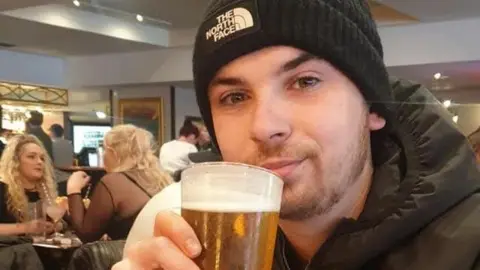 Brain Tumour Research
Brain Tumour ResearchA man who initially attributed his "soul-destroying" fatigue and memory loss to being overworked is now trying to raise awareness of brain tumour symptoms.
In 2019, Liam Harvey, from Bristol, was diagnosed with cystic craniopharyngioma - a benign brain tumour - following sudden blackouts and extreme exhaustion.
The 26-year-old underwent three brain surgeries, eight weeks of radiotherapy treatment and the insertion of a permanent brain drain to combat swelling.
Now in recovery, Mr Harvey walked 124 miles (200km) in May to raise awareness of symptoms and gather vital funds for cancer charity Brain Tumour Research.
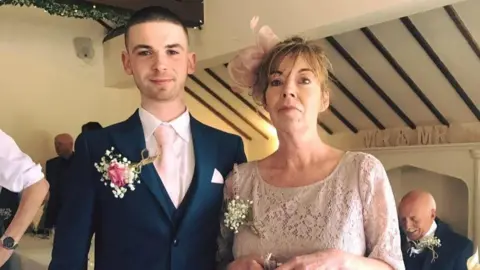 Brain Tumour Research
Brain Tumour ResearchThe maintenance worker was used to 80-hour weeks, but one day something changed.
He said he began blacking out without warning, falling asleep mid-conversation, forgetting entire days and "projectile vomiting".
"I went to the doctor twice and was told it was poor diet and working long hours, so I didn't think too much of it," he said.
Mr Harvey was initially diagnosed as "underworked and underfed", but after losing 80% of his eyesight, an emergency visit to the optician marked the first step in a life-altering journey.
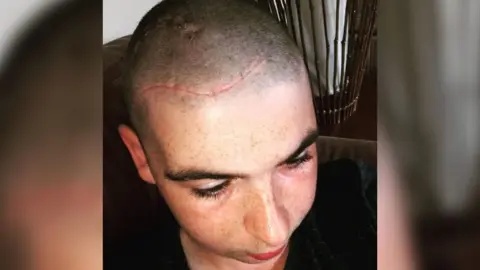 Brain Tumour Research
Brain Tumour Research"I couldn't even stay awake through the exam," he recalled. "I woke up hearing the optician telling my mum that I needed to go to the hospital, urgently.
"He said there was something behind my eye."
A magnetic resonance imaging (MRI) scan at Royal United Hospital in Bath revealed Mr Harvey's diagnosis. He then underwent eight hours of surgery to remove the tumour.
'A nightmare'
Mr Harvey gained more than eight stone over eight weeks due to steroid medication, and his skin split under the pressure of rapid weight gain.
"My skin tore from the stretch marks. The fatigue was soul-destroying," he said.
"It was a nightmare that I just wanted to end. I had no idea what was going on, I was in shock."
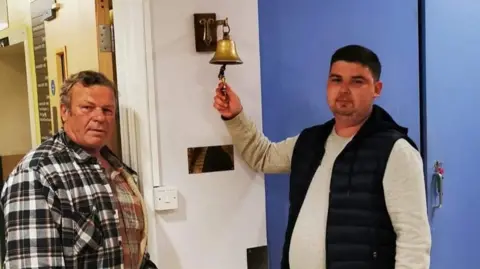 Brain Tumour Research
Brain Tumour ResearchBy the end of October 2019, Mr Harvey rang the bell to mark the end of treatment.
But recovery brought new challenges as his hip began deteriorating from the side effects of his treatment.
He received a hip replacement at Southmead Hospital in January 2021 and returned to work in August that year.
Now, Mr Harvey has not only reclaimed his independence but is determined to bring hope to others.
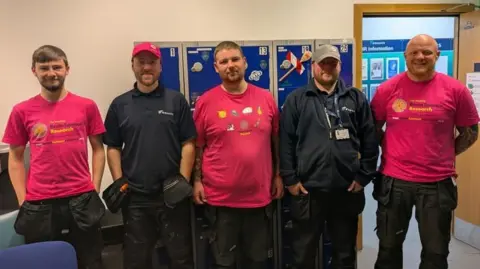 Brain Tumour Research
Brain Tumour ResearchKatrina Jones, head of community and digital fundraising at Brain Tumour Research, said: "Liam's journey is a powerful reminder of the urgent need for increased investment in brain tumour research.
"His resilience and determination to raise awareness and funds inspire us all.
"We are deeply grateful for his support and commitment to helping find a cure for this devastating disease."
Follow BBC Follow BBC Bristol on Facebook, X and Instagram. Send your story ideas to us on email or via WhatsApp on 0800 313 4630.
